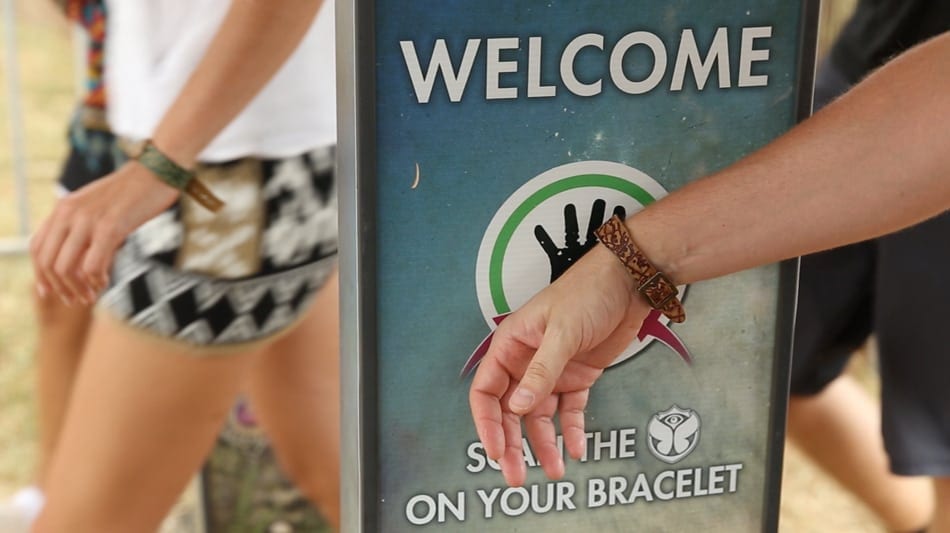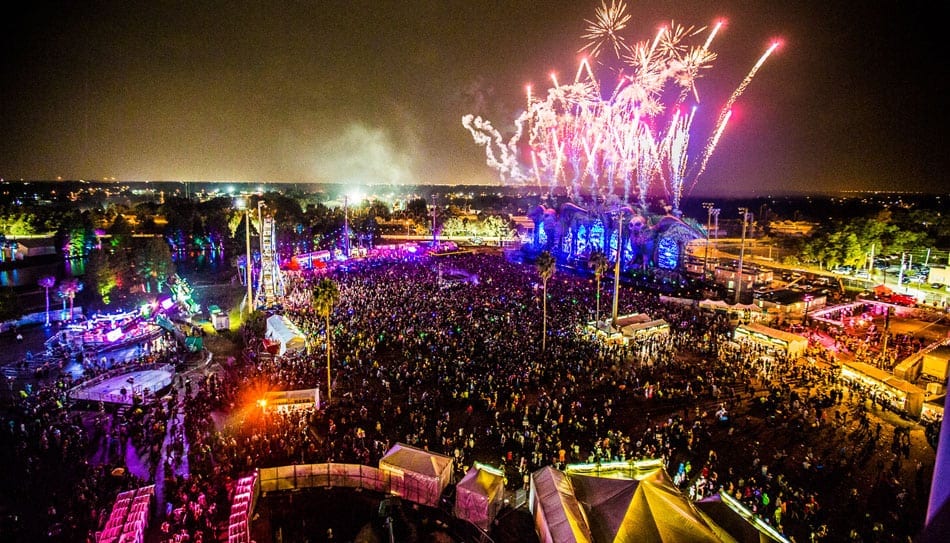On the benefits RFID brings to the industry, Serge explains:
I think that people are yet to fully understand the extent of the advantages available from RFID technology, which is surprising because once you experience it first-hand, there is no going back. I explain to clients that we are ‘extremely infectious and there is no cure’. No one who has ever started to use RFID for Access Control has gone back to using barcodes. Once you’ve started using RFID for Cashless services, you can be certain you will not revert back to chips, coupons or handling cash on-site. If you are trying to connect consumers with your sponsor brands, commercial partners, and other unique content using RFID Experiential and be able to measure ROI in real-time, there is no going back to traditional forms of brand initiatives. It’s time for people to recognize how RFID can be used to help increase fan engagement and elevate your brand, product or service to the public before, during and after an event.
Let’s talk about what you do when you go to a festival. You create a community. When you create a community at a music festival, as an event organizer, you aim to provide everything required to adopt a certain lifestyle for three days – every element of the event is thoughtfully prepared so guests can focus on being immersed in that musical community. As a festival goer, for those few days, you don’t want the outside world to creep into that community. And as an event organizer, you also don’t want a payment system that relies on the outside world.
Take this analogy – gamblers created a community and they called it a ‘casino’. What do you do when you enter a casino? You exchange your money for chips, which then becomes your currency in the casino environment. People recognize that inside the casino each chip has a certain value, but leave that gambling community and try to use the chips in the outside world without first exchanging them; they hold no actual worth or value in the outside world. The music world is no different, we can create a fully Cashless community that is just as well established.
The benefit of adopting RFID is that you can complete the creation of your Cashless community by not relying on any elements from the outside world. Some people argue that ‘contactless’ (such as credit cards and debit cards) is considered ‘cashless’, but this is simply plastic money. You can have fantastic technology, but if it is implemented in an environment where a connection to the outside world is required – such as credit card processing – that’s when it becomes extremely difficult for organizers to predict the outcome of payment processing on-site at an event. That’s why our Cashless Payment solution operates on a closed-loop, server-connected system that does not rely on the public Internet, ensuring 100% uptime across an event.
On the pace of RFID adoption in the UK events market:
I describe it with a ‘pool party’ analogy. You arrive at the pool party; it’s full of water and people are standing around the pool just waiting. Two things may happen, somebody will either get pushed in the pool or somebody will jump in, and when that happens the pool soon fills up quickly.
But something may also happen, the guy that jumped in the pool may drown and after that nobody else gets in the pool until the next pool party. I have seen this happen before. RFID along with Cashless Payments is a new concept, and as a result, there are many varying thoughts on how people define the technology and its capabilities. RFID has so many elements that can be combined together, it sometimes takes time to be acknowledged in certain marketplaces. In the UK, the current acceptance is very low, but it will eventually reach a tipping point – like it already has in other marketplaces – it all depends on the pool party.
 On the topic of RFID patron surveillance:
Our RFID technology is not used to surveillance guests. Every short range interaction with our platform is recorded such as scanning a wristband at an Access Control Portal. We know when that wristband enters or exits a zone, but we don’t track movement within it.
Also, the wristband holder is kept incognito unless they choose to personalize their wristband by creating an online account. Organizers can incentivize their guests to register in exchange for prize giveaways and enhanced customer service, but information is not shared with third parties without the user having opted-in to receive further communications. This is just like a user choosing to disclose their location on certain mobile apps with GPS capabilities. The technology is not an infringement or another layer of privacy invasion – this is a myth.
The key is for organizers to be transparent with guests – what information are we asking for, how will it be used, and how will this benefit the guest. If these elements are well communicated, guests will know exactly what they are opting in for and trust the technology.
On the future of RFID:
RFID adoption will continue to grow, as organizers discover the benefits of an advanced technological environment that serves to enhance guest experiences further. The future of the technology is to create more ways to help people actively engage with more content at festivals.
As an example, you go to a festival featuring 100 acts – five to eight headliners and another 90 acts you are discovering for the first time. We can create contact points to connect fans to bands, helping them to access key information about all performances they saw throughout the festival, and updates on when those bands are visiting local venues – all of which helps to grow the music business. RFID helps to bridge the gap between real life and digital communities.
On RFID best practices:
It’s all about trusting a company with a reputable track record, instead of being a guinea pig. The best operators are those who have dedicated staff to help those on both sides of the counter, the event organizer plus ticket-holders, purely to ensure the needs of both are understood and addressed.
For example, our work at Eurosonic Noorderslag was centred around delegates wanting to receive information from all the panels, so we created entrance points across 22 venues where delegates could ‘live click’ to obtain the contents of their preferred panel topics. It is very important for us that people using our technology do not feel invaded by the technology, but actively choosing to use it in order to get something they really want.
On RFID inspiration:
I remember going to visit my daughter at her university campus around 2007 and she introduced me to the world of ‘Facebook’ – a digital community that suddenly everybody was talking about. After a little reflection, I understood that the Internet was not going to be built around products, services or businesses anymore, but it was going to be built around people – a complete shift. It dawned on me that these digital communities were here to stay because we are animals of communities and helping to bridge the gap between reality and digital was the idea behind Intellitix.]]>
On the topic of RFID patron surveillance:
Our RFID technology is not used to surveillance guests. Every short range interaction with our platform is recorded such as scanning a wristband at an Access Control Portal. We know when that wristband enters or exits a zone, but we don’t track movement within it.
Also, the wristband holder is kept incognito unless they choose to personalize their wristband by creating an online account. Organizers can incentivize their guests to register in exchange for prize giveaways and enhanced customer service, but information is not shared with third parties without the user having opted-in to receive further communications. This is just like a user choosing to disclose their location on certain mobile apps with GPS capabilities. The technology is not an infringement or another layer of privacy invasion – this is a myth.
The key is for organizers to be transparent with guests – what information are we asking for, how will it be used, and how will this benefit the guest. If these elements are well communicated, guests will know exactly what they are opting in for and trust the technology.
On the future of RFID:
RFID adoption will continue to grow, as organizers discover the benefits of an advanced technological environment that serves to enhance guest experiences further. The future of the technology is to create more ways to help people actively engage with more content at festivals.
As an example, you go to a festival featuring 100 acts – five to eight headliners and another 90 acts you are discovering for the first time. We can create contact points to connect fans to bands, helping them to access key information about all performances they saw throughout the festival, and updates on when those bands are visiting local venues – all of which helps to grow the music business. RFID helps to bridge the gap between real life and digital communities.
On RFID best practices:
It’s all about trusting a company with a reputable track record, instead of being a guinea pig. The best operators are those who have dedicated staff to help those on both sides of the counter, the event organizer plus ticket-holders, purely to ensure the needs of both are understood and addressed.
For example, our work at Eurosonic Noorderslag was centred around delegates wanting to receive information from all the panels, so we created entrance points across 22 venues where delegates could ‘live click’ to obtain the contents of their preferred panel topics. It is very important for us that people using our technology do not feel invaded by the technology, but actively choosing to use it in order to get something they really want.
On RFID inspiration:
I remember going to visit my daughter at her university campus around 2007 and she introduced me to the world of ‘Facebook’ – a digital community that suddenly everybody was talking about. After a little reflection, I understood that the Internet was not going to be built around products, services or businesses anymore, but it was going to be built around people – a complete shift. It dawned on me that these digital communities were here to stay because we are animals of communities and helping to bridge the gap between reality and digital was the idea behind Intellitix.]]>


